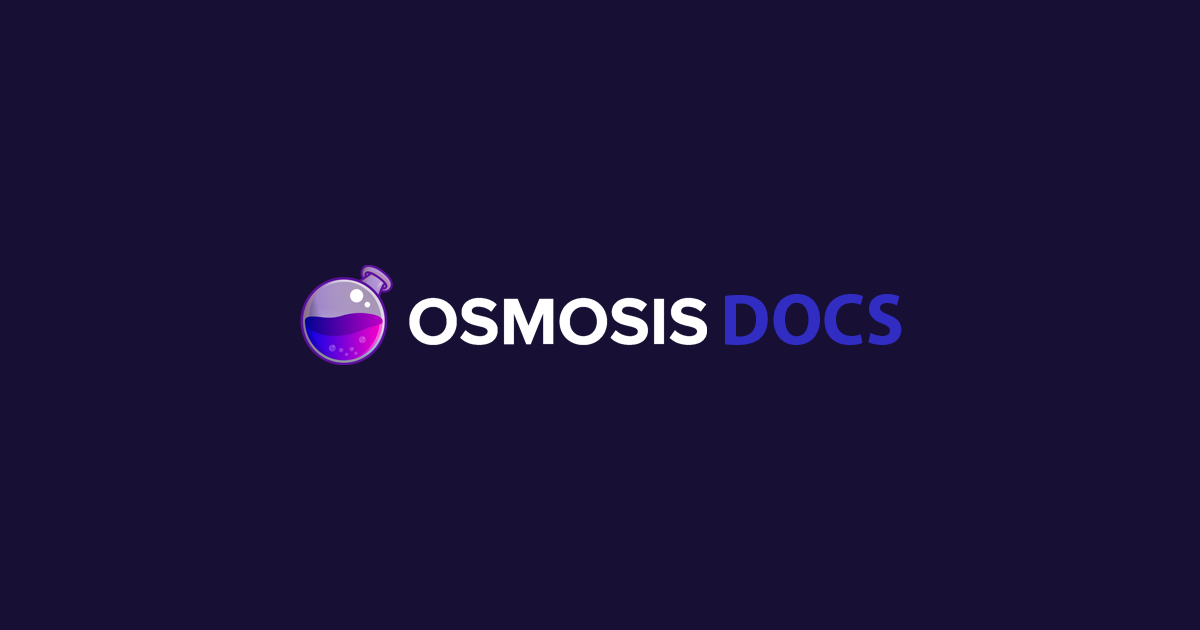Osmsosis Docs
Osmosis' documentation portal, built with Docusaurus and inspired bye Dyte's configuration and template.
Explore the docs »
View Demo
·
Report Bug
·
Request Feature
Table of Contents
About The Project
Docusaurus is a static site generator that helps you ship beautiful, accessible docs. For building our documentation portal, we have made certain modifications over the template generated by Docusaurus to be able to properly showcase Osmosis-core, Cosmwasm and Javascript SDKs
Built With
Getting Started
This section describes how you can get our documentation portal up and running on your machine.
Prerequisites
Installation
- Clone the repo
git clone https://github.com/osmosis-labs/docs.git- Install NPM packages
npm install- Run the app
npm startUsage
Writing Documentation
To just edit older documentation, go to the specified versioned folder for a section, for example, you want to edit documentation for React SDK v0.25.x, open up react_versioned_docs/version-0.25.x and edit the required files there.
To create a new version inside a section, for example, flutter. Make your changes in docs/flutter. The ./docs folder consists of the next version, which is unpublished, and is where you add your newer or next version of documentation.
After your changes are done, to create a version, run the following command:
npm run docusaurus docs:version:flutter 1.2.3This will create a new version 1.2.3 for flutter.
Reference: https://docusaurus.io/docs/versioning
To add new sections
Create a new section in docusaurus by adding a new plugin entry in docusaurus.config.js.
If you're adding a new section, just add new section to SECTIONS[] array with the defineSection() utility easily.
Now, run npm start and you can access your Go docs at http://localhost:3000/go/introduction
Then, you can create versions and edit older versions as mentioned above.
Adding new docs to the Context Switcher
To add a newly created section to the Sections Menu, edit ./src/sections.js.
For example, for a section go, you will add:
import { GoIcon } from '../assets/icons';
const SECTIONS = [
// ...
{
id: 'go',
name: 'Go',
icon: GoIcon,
section: false, // if it shouldn't have a sections menu
},
]You'll need to create a GoIcon component too.
That is it!
Contributing
Contributions are what make the open source community such an amazing place to be learn, inspire, and create. Any contributions you make are greatly appreciated. Sincere thanks to all our contributors. Thank you, contributors!
Support
Contributions, issues, and feature requests are welcome! Give a ⭐️ if you like this project!
License
Distributed under the Apache License, Version 2.0. See LICENSE for more information.
